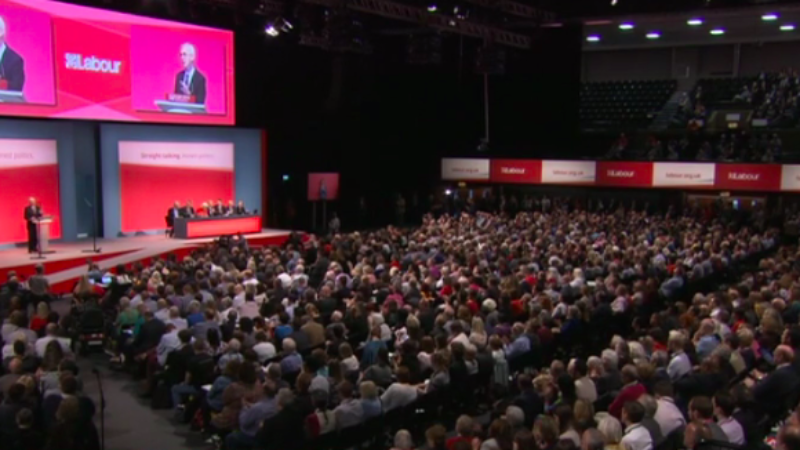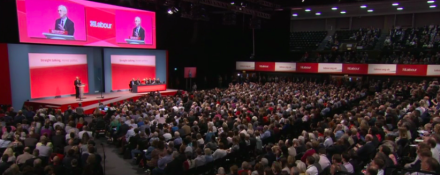
1 – What are Labour’s policies?
While the policy was not debated, Labour’s current position on Trident (that of supporting its renewal), was essentially reaffirmed by the passing of the Britain in the World report, while Shadow Defence Secretary Maria Eagle made clear in her speech that she supports a nuclear deterrent. This could, of course, change in future, but for the moment it remains Labour policy even though the leader does not agree with it.
Corbyn’s plan to renationalise railways as the current franchise contracts expire was supported by conference, and becomes practically party policy. However, it is not yet theoretically official party policy, as it now goes with a conference recommendation to the National Policy Forum.
Conference did pass a motion opposing intervention in Syria without a specific UN resolution (which is unlikely, because Russia would veto it, and in effect would mean no support for intervention). This is not a binding policy, and John McDonnell has suggested that a free vote would be the probable position taken.
2 – Appointing John McDonnell as Shadow Chancellor has paid off
McDonnell’s appointment was the earliest controversy of Corbyn’s leadership, with concerns that Corbyn was not looking to build a broad Shadow Cabinet, and criticisms over men dominating top frontbench positions.
However, that all seemed to be forgotten this week. McDonnell kicked off conference by revealing on Saturday that Labour will support Osborne’s fiscal charter, committing the government to run a budget surplus by 2019-20. The move took many by surprise, and the plaudits for McDonnell continued following his well-received speech on Monday. It left me choosing him as the MP with the best conference for the Demos Fantasy Politics.
3 – The rulebook rules
As Corbyn looks to open up the party and return power to conference delegates, those with superior knowledge of Labour rulebook minutiae are going to be the ones who hold great power. The decision by delegates and trade unions to vote against debates on Syria and Trident meant the media did not have the opportunity to plaster stories about Labour splits across the front of the papers.
This does not, however, mean those splits do not exist, and Labour’s different factions are ready to battle in a very democratic, and to the outsider very dull, manner. Internal organising will lead the arguments behind closed doors at Labour Party meetings all the way down to branch level. Moderate MPs look to get themselves on obscure parliamentary and PLP committees in order to set the agenda.
4 – Membership still rising
Jeremy Corbyn confirmed in his speech that over 50,000 had joined the party since he was elected leader, while Tom Watson revealed that 2,200 people had joined on Tuesday alone. The huge expansion in membership since May’s defeat sees no sign of abating, as the “new politics” seems to be attracting many who are fed up with the same old, same old.
It’s very difficult to know how long this can be sustained for, but it seems we are not reaching saturation level yet.
5 – Power in the NEC is shifting
There were two changes on the National Executive Committee this week: Hilary Benn was replaced on the MPs’ section by Corbyn supporter Rebecca Long-Bailey, and Community Union’s representative was voted off in favour of someone from the more left wing BFAWU. This now gives the left a slight edge on the NEC, and there is a good chance this power could grow.
Next summer sees the next NEC elections, in which every Labour Party member can vote for representatives in the CLP section. The left, helped by Ken Livingstone’s name recognition, have been fairly successful in this section over recent years, and the new members could spell further good news for them. With a private tussle currently taking place in the party over the exact rules for getting rid of a leader (there are ambiguities), a pro-Corbyn majority on the NEC would help him hugely in tightening his grip on the leadership.





More from LabourList
‘Turning public services around: Haringey’s story of child protection’
‘Can Labour turn the green tide back to red?’
Tom Belger column: ‘Why is Labour making migrant exploitation easier?’